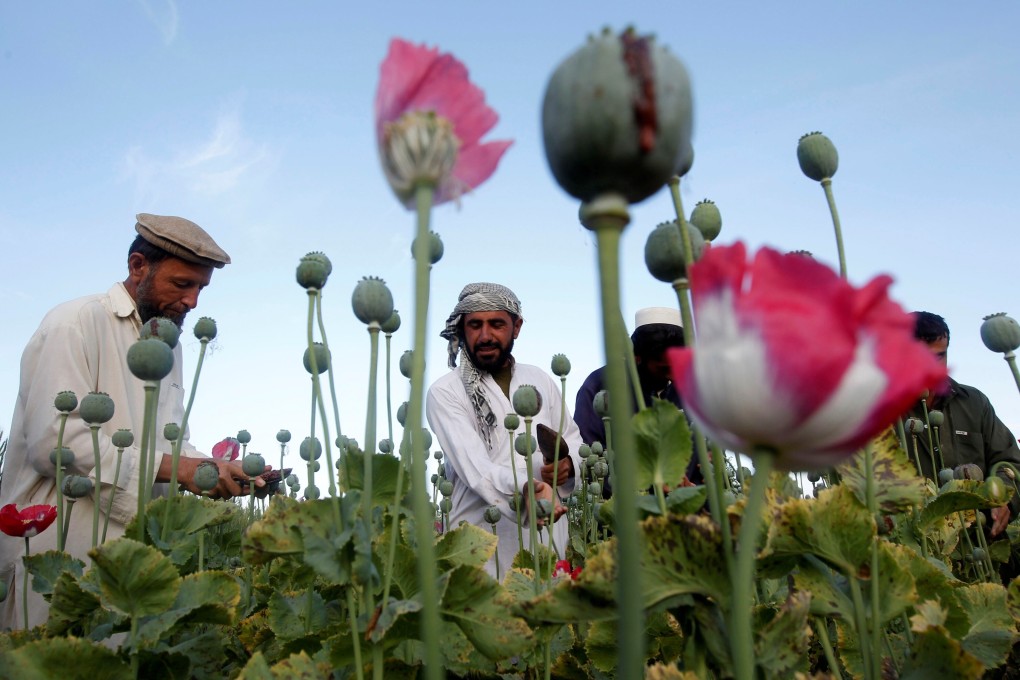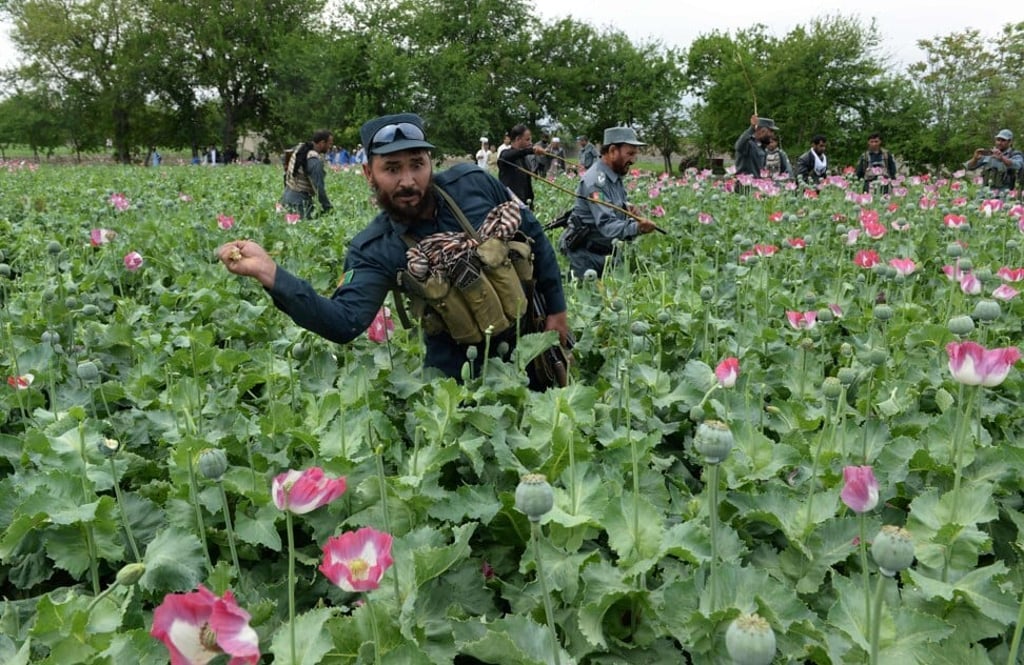Profits and poppies: Afghanistan’s illegal drug trade a boon for Taliban
- The US spent more than US$8 billion over 15 years on failed efforts to deprive the Taliban of their profits from Afghanistan’s opium and heroin trade
- It is estimated that Afghanistan’s illicit drug business is responsible for more than 80 per cent of opium and heroin supplies globally

The United States spent more than US$8 billion over 15 years on efforts to deprive the Taliban of their profits from Afghanistan’s opium and heroin trade, from poppy eradication to air strikes and raids on suspected labs.
That strategy failed.
As the United States wraps up its longest war, Afghanistan remains the world’s biggest illicit opiate supplier and looks certain to remain so as the Taliban is on the brink of taking power in Kabul, said current and former US and UN officials and experts.
Widespread destruction during the war, millions uprooted from their homes, foreign aid cuts, and losses of local spending by departed US-led foreign troops are fuelling an economic and humanitarian crisis that is likely to leave many destitute Afghans dependent on the narcotics trade for survival.
That dependence threatens to bring more instability as the Taliban, other armed groups, ethnic warlords, and corrupt public officials vie for drug profits and power.
Some UN and US officials worry Afghanistan’s slide into chaos is creating conditions for even higher illicit opiate production, a potential boon to the Taliban.
